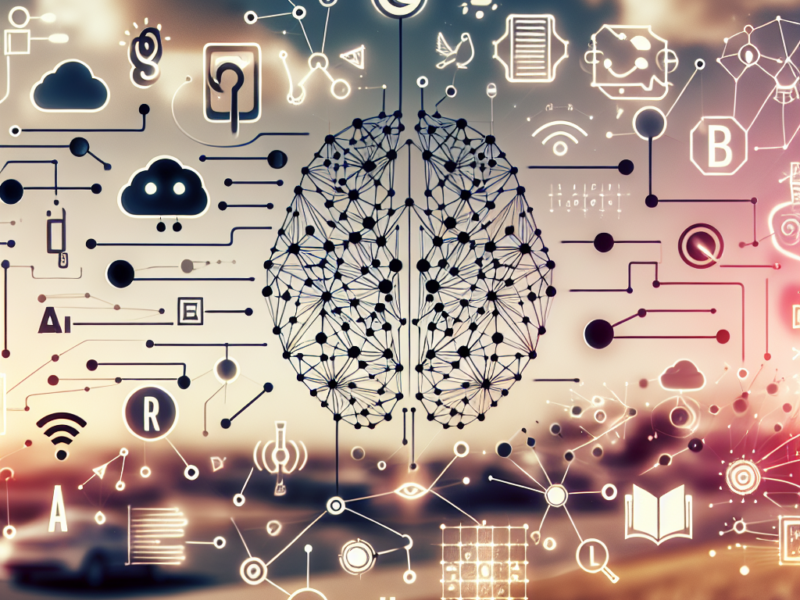In recent years, the landscape of natural language processing (NLP) technology has undergone a dramatic transformation. Fueled by advances in machine learning, particularly deep learning, and the exponential growth of data, we are witnessing a new era of human-computer interaction. These developments are not only enhancing the user experience but also bridging the gap between machines and human language comprehension. This article explores the latest advances in NLP technology, how they are revolutionizing conversations, and what the future may hold.
Understanding Natural Language Processing
Natural Language Processing refers to the branch of artificial intelligence that focuses on the interaction between computers and humans through natural language. It encompasses various tasks, including sentiment analysis, translation, speech recognition, text generation, and more. The goal of NLP is to enable machines to understand, interpret, and respond to human language in a way that is both meaningful and contextually relevant.
Key Advances in NLP Technology
1. Transformer Models and Attention Mechanisms
The introduction of transformer models marked a seismic shift in how NLP tasks are approached. Models like BERT (Bidirectional Encoder Representations from Transformers) and GPT (Generative Pretrained Transformer), developed by Google and OpenAI, respectively, have set new benchmarks in processing and generating human language. In contrast to traditional models, transformers leverage attention mechanisms, allowing them to weigh the significance of different words within a sentence based on context.
This innovation has enabled these models to excel in a myriad of tasks, from translation to sentiment analysis, showcasing a remarkable understanding of nuance and context. GPT models, for example, can generate coherent and contextually appropriate text, facilitating more seamless and engaging conversations.
2. Conversational AI and Chatbots
The surge in the sophistication of NLP technologies has propelled the development of conversational AI and intelligent chatbots. Businesses are increasingly deploying these tools for customer service, personal assistance, and even therapy. Modern chatbots are not just programmed with fixed responses; they utilize NLP algorithms to understand user intent and maintain context over multiple interactions.
Advances in sentiment analysis also allow these chatbots to gauge the emotional tone of conversations, enabling them to respond more empathetically and appropriately. This not only enhances user satisfaction but also fosters a sense of connection between users and the technology.
3. Multimodal Capabilities
Another frontier in NLP innovation is the integration of multimodal capabilities, where systems can process and understand multiple forms of data—text, images, and audio. By combining insights from various modalities, these systems can deliver richer and more nuanced conversational experiences.
For example, a multimodal AI can analyze a user’s facial expressions while they interact vocally, allowing it to gauge engagement or frustration. This holistic understanding enhances interactions in applications ranging from virtual classrooms to interactive gaming, creating a more immersive user experience.
4. Personalization and Contextual Understanding
The ability to personalize conversations based on user preferences and historical interactions has become increasingly sophisticated. Advanced NLP systems can remember user preferences, past interactions, and specific contexts, allowing them to tailor their responses more effectively. This capability not only enhances user engagement but also builds trust and loyalty toward the technology.
Furthermore, continuous learning mechanisms enable NLP models to adapt over time, refining their understanding of individual users and becoming more adept at anticipating their needs. This aspect of personalization is especially prevalent in virtual assistants, which can evolve into a more intuitive and supportive companion.
5. Ethical Considerations and Bias Management
As NLP technologies become more integrated into daily life, ethical considerations surrounding bias, privacy, and misinformation have come to the forefront. Researchers and developers are now focusing on creating fairer models that minimize biases present in training datasets. Techniques such as adversarial training and fairness-aware algorithms are being explored to ensure that NLP systems treat all users equitably.
Additionally, transparency in how these models operate is gaining traction, with efforts being made to explain how decisions are made and how data is used. This movement towards ethical AI is crucial for fostering trust between users and technology providers.
The Future of NLP: What Lies Ahead
As we venture into the future, the potential applications of NLP technology seem limitless. Areas such as mental health support, education, and content creation stand to benefit significantly from further advancements. We can expect enhanced capabilities for real-time translation, making cross-cultural communication more accessible, and tools that can intuitively assist in creative processes.
Moreover, as computational resources continue to evolve, we may witness the emergence of even more sophisticated models capable of deeper contextual understanding and emotional intelligence.
In conclusion, the latest advances in NLP technology are not only revolutionizing how we converse with machines but also how machines understand and respond to human language. The ongoing evolution of this field promises exciting possibilities, making human-computer interaction more intuitive, personalized, and enriching than ever before. As we embrace these advancements, the focus on ethical practices will be paramount, ensuring a future where technology serves humanity responsibly and equitably.











